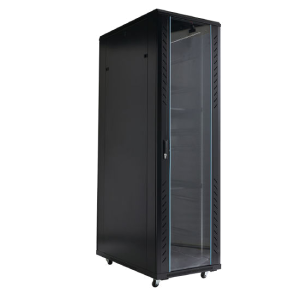Supercharge Your Office Devices With Cat5e Data Cabling
Unlock the full potential of your business broadband with our expertly installed Cat5e or Cat6 Data Cabling. Transform your office environment into a powerhouse of connectivity, allowing every device to harness the internet with unparalleled speed and reliability, akin to being directly plugged into the router. Don’t settle for subpar connectivity—let us optimize your network infrastructure to propel your business forward with seamless digital efficiency.
- Cat5e & Cat6e Instalation
- State-of-the-Art Wi-Fi Solutions
- Fibre Splicing
- Data Cabinet Refresh

Experienced In Delivering Quality Connectivity
Our Data Cabling Expertise
At Blue Portal, our mission is to optimise your business’s network infrastructure for unparalleled efficiency. That’s why we advocate for the installation of Cat5e and Cat6 data cabling within your office premises. By strategically laying data cables throughout your workspace, we ensure that your office devices experience connectivity akin to being directly plugged into the router. If you’re ready to unleash the full potential of your broadband, reach out to us today for a complimentary office or site survey. Let’s revolutionise your network capabilities together.
"At Blue Portal, our mission is to provide exceptional data cabling and network point installation services. We are passionate about guiding our customers through each step of the process, from planning to execution, to ensure a seamless and efficient setup. Your connectivity and satisfaction are our priorities, and we are dedicated to offering the highest quality support and expertise at every stage."



Matthew Perry
Voice & Data Director
How Blue Portal Can Connect Your Business
Our Data Cabling Services
Refuse to compromise when it comes to optimizing your business network. Elevate your connectivity standards beyond basic setups. At Blue Portal, we believe your business deserves top-notch reliability and performance. That’s why our data cabling and network installations are meticulously designed with enterprise-grade features, ensuring robust connectivity for your operations. Trust us to enhance your infrastructure and support your business with seamless connectivity and efficiency.
Cat5e & Cat6 Installation
Cat5e and Cat6 cables are essential for business due to their reliable high-speed connections. Cat5e supports up to 1 Gbps, suitable for everyday tasks, while Cat6 offers speeds up to 10 Gbps and better performance over longer distances, ideal for data-heavy applications. They ensure efficient data transfer, minimal interference, and a strong network foundation, crucial for seamless business operations.
Data Cabinet Tidy-Up
Having someone carry out a data cabinet tidy improves organization, enhances airflow, and reduces the risk of overheating. It makes maintenance easier, minimises downtime, and ensures faster troubleshooting. Overall, it enhances the efficiency and reliability of your network infrastructure.
Business Level Wi-Fi Solutions
A state-of-the-art WiFi solution enhances a business's network with faster, more reliable connections, improved security, and better coverage. It supports more devices and modern applications, boosting productivity and efficiency while ensuring seamless communication and minimal downtime.
Fibre Splicing
Fibre splicing is the process of connecting two optical fibres to make a continuous line for data transmission. This is important for setting up or fixing fibre optic networks. The main methods are fusion splicing, which uses heat to join the fibres, and mechanical splicing, which aligns and holds them with a connector. Both methods need careful handling to keep the network working well.
The Journey Of Securing Your Business
Our Step-by-Step For Data Cabling Installation
From small local enterprises setting up their networks to expansive national corporations enhancing their infrastructure, we have catered to businesses of all sizes. No matter the scale of your enterprise, trust us to guide you through our streamlined, step-by-step process to optimize your data cabling and network installation. With our expertise and commitment to excellence, we will ensure that your business is equipped with the ideal connectivity solutions tailored to your specific needs. Let’s embark on this journey together to enhance your business’s efficiency and success.
Free Cabling Survey
Complete the form below or call us directly to book you Free Site survey where will advise on the best network solution for your business.
Data Cabling Install
After our Free survey and placing an order, our Data Cabling Experts will attend site to install your Network cables and Network points.
Good to Go
Your network infrastructure is now ready to utilise.
Business That Are Backing Blue Portal
Blue Portal Data Cabling Partners


Not Sure What Data Cabling You Require, Get The Experts In
Arrange Your Network Site Survey Today!
FAQ's
What is structured cabling, and why is it important?
Structured cabling is a telecommunications network or private data network that uses cables to connect devices from the computer to the telecommunications infrastructure.
The structured network cabling provides support for voice, video, and data communications for computers and services.
It is essential because they offer better speeds and performance from their systems, leading to smoother network infrastructure.
What are the types of CAT cables, what are they each for?
The different types of CAT cables are:
CAT 5: This cabling standard is pretty old and is comparatively slower than others. They are only rated to provide up to 100 MHz bandwidth.
Cat 5e: They have four twisted pairs instead of two and a higher frequency rating. With these, you can expect better performance than the previous internet cables.
Cat 6: Category 6 offers increased bandwidth of up to 500 MHz. It also includes more stringent specifications for crosstalk and system noise. They are suitable for Gigabit Ethernet and other high-speed network applications, such as 1000BASE-T.
Cat 6a: The “a” in Cat 6a stands for augmentation. These cables are faster, denser, and more technologically advanced than regular Cat 6 cables because they have a shield to eliminate crosstalk.
Cat 7: Cat7 can operate at up to 40Gbps at distances up to 50 m and 10Gbps at distances up to 100 m. They have stricter specifications regarding crosstalk.
Cat 8: Cat 8 is the most advanced Ethernet cable. They can support bandwidths of up to 2000 MHz at speeds of up to 40 Gbps.
What is the difference between Cat 5 and CAT 6?
Cat 5 and CAT 6 differ in their transmission speeds. At 100 m, Cat 5 can reach up to 10/100 Mbps, while Cat 6 can reach up to 1 Gbps.
Shielded cables vs. non-shielded cables, what is the difference?
Shielded cables are somewhat more difficult to install and maintain compared to non-shielded cables. However, they provide superior protection against electromagnetic interference (EMI), which can disrupt the functioning of electrical systems. On the other hand, non-shielded cables are easier to work with but are more vulnerable to EMI.
Is there a maximum distance to run a data cable or wire?
Ethernet cables are available in a few different versions. Still, all have a maximum range of 100 meters, i.e., 328ft
What is a fibre optic cable?
A fibre optic cable contains anywhere from one to several hundred optical fibres within a plastic casing. Fibre optic cable (or optical fibre cable) transfers data signals in the form of light and travel anywhere from a few feet to hundreds of miles significantly faster than signals in traditional copper cables.
When is it necessary to use fibre optic cables?
Fibre optic cables can carry enormous volumes of data at very high speeds. For this reason, fibre optic technology serves various purposes. It is always the preferred networking method, whether it is between systems within a building or across buildings.
Advantages of Fibre Optic Cable
Fibre optic cabling has several major characteristics which provide a strong advantage compared to traditional copper conductor cables.
Key advantages of optical fibres include:
- Distance – because of their low signal power loss rate, fibre optic cables are able to carry optical signals over far longer distances than older types of cabling. With the ideal combination of network setup, materials, and wavelength, some single fibre optics are effective at carrying signals over hundreds of kilometres. In comparison, standard copper cables have a limitation of 328-feet for good quality transfer distance
- Bandwidth and data transfer – copper data cables offer quite limited bandwidth as opposed to fibre optics
- Speed – fibre optic cables enjoy a significant speed advantage compared to other data transfer modes because they use light pulses as the primary information conveyance source. In this regard, fibre typically outstrips the expected performance of even high-grade copper cables such as Cat5 and Cat6
- Interference – much more protection is provided against interference and cross-talk by fibre optics than metal cables. This is because fibre does not carry a physical electrical signal
- Reliability and safety – although optical fibre cables are usually a lot lighter and thinner, they are also sturdier. This means that they can withstand far greater forces and therefore the chances of incurring breakage or damage across long runs are less likely. Fibre is not influenced by moisture, poor weather, or extreme temperatures nearly as much as copper-based wiring. Additionally, as glass fibres do not carry current, they are not fire hazards even if they are ageing or damaged
